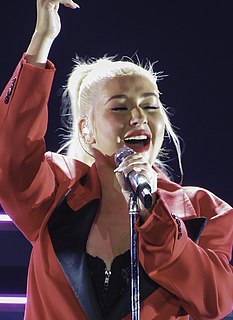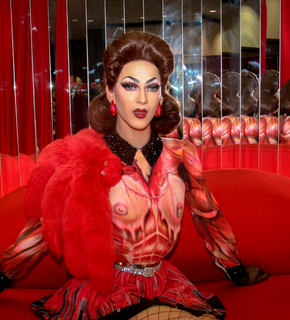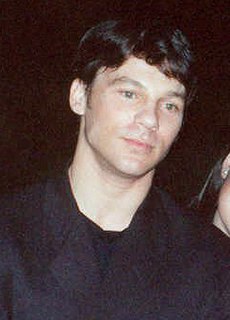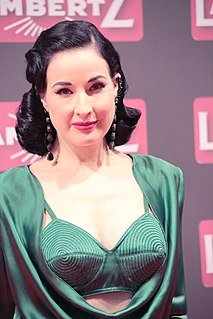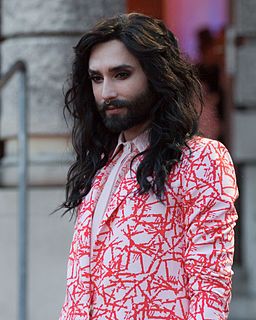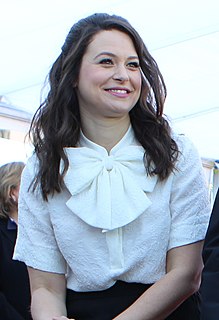A Quote by Karen Abbott
Classic burlesque in the style of Gypsy which many modern burlesque troupes practice is, at its core, so playful and teasing and innocent. It's not hardcore stripping so much as letting your body tell a story; the women are playing characters and unfolding a complete narrative onstage, with beginning, middle, and end.
Related Quotes
There have been a lot of roles and scripts that have come my way but nothing that really inspired me or intrigued me like when "Burlesque" showed up at my door. Just the whole concept of burlesque, I've always been fascinated with it. I've always collected so many books about burlesque. I've been intrigued by the time that it's set in, in the 20's, 30's, 40's and so I knew it was a no brainer for me to be a part of once I met with the team.
When you tell a story, there are imperatives of structure, of style, of pacing and all of this, that are there simply because you want to make it a good story. When do you introduce your characters? When do you put them onstage, when do you take them off the stage? How do you weave the different threads of the narrative together?
Her sister [June Havoc] said the musical portrayed who Gypsy [Rose Lee] wanted to be before the burlesque thing happened she wanted to be this beautiful, romantic person with dreams. So Gypsy told the story of her life as she wished she'd lived it: embellishing, softening the edges, eliminating certain things altogether.
I know my comfort zone and I know what my strong points are and my first love was always music. I'm a huge cinema fan. I was taking my time; I got offered a lot of scripts and things along the way but until Burlesque showed up at my doorstep, it really spoke to me. I have a collection of burlesque books at home that I've had for years. I've always been intrigued and fascinated with the topic, the beauty and the art of it and the comedic value of it. I think it's just a beautiful, empowering thing for women.
I'd done drag since I was 14, for special occasions, and in 2010 a friend of mine with her own burlesque group was looking for a host. During a party I was just fooling around, taking the microphone, saying stupid, funny things, and she asked me afterward if I wanted to host her burlesque show every Saturday.
I do think the challenge, in a way for me, is to write a narrative film and when you finish watching it you feel like it's a collage. You tell the narrative, you tell the story, but you feel like you've created this tapestry. But it also has a shape, a story. So I think there's a middle ground that I try to strike... away from where everyone else seems ready to go, which is, setup, payoff. You know, He's afraid of water, oh, and at the end he's swimming in water - oh, my God. I hate that stuff.

